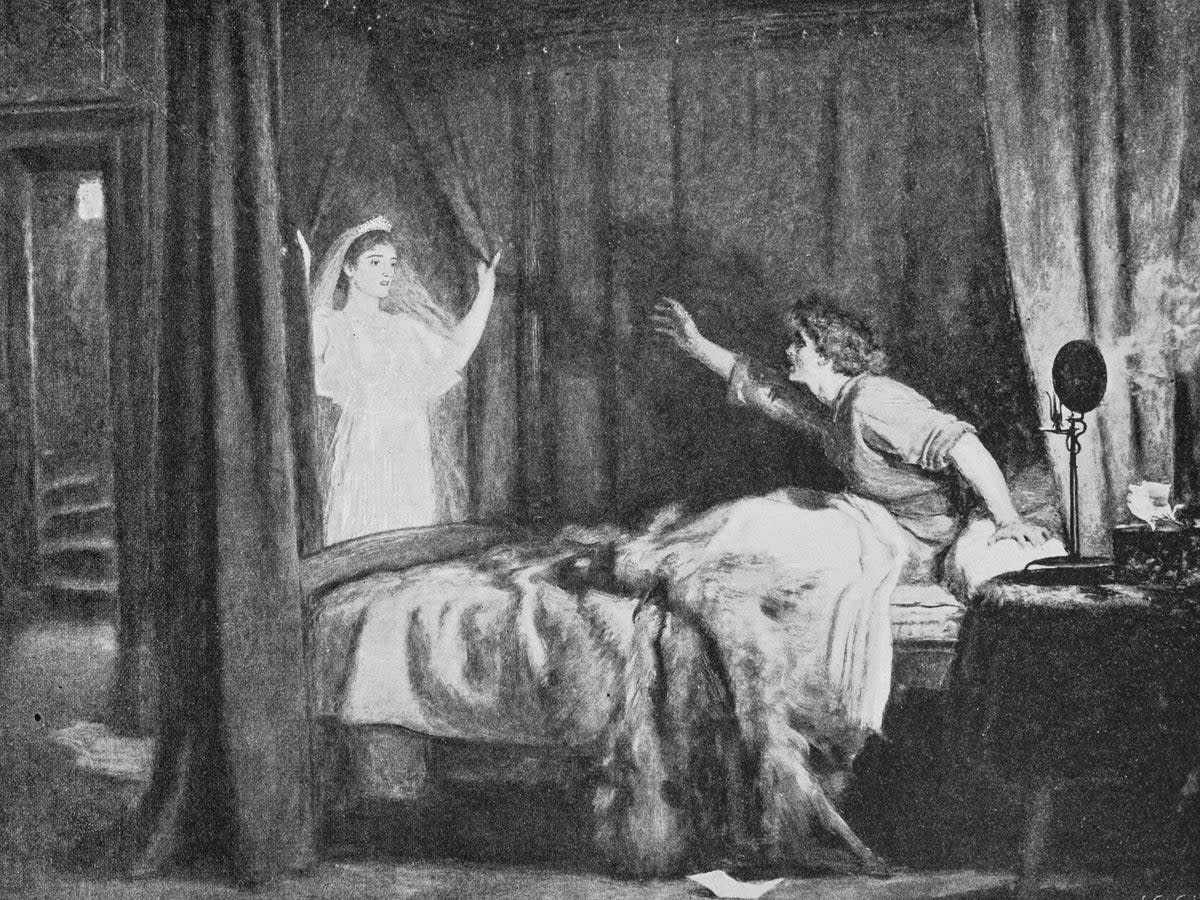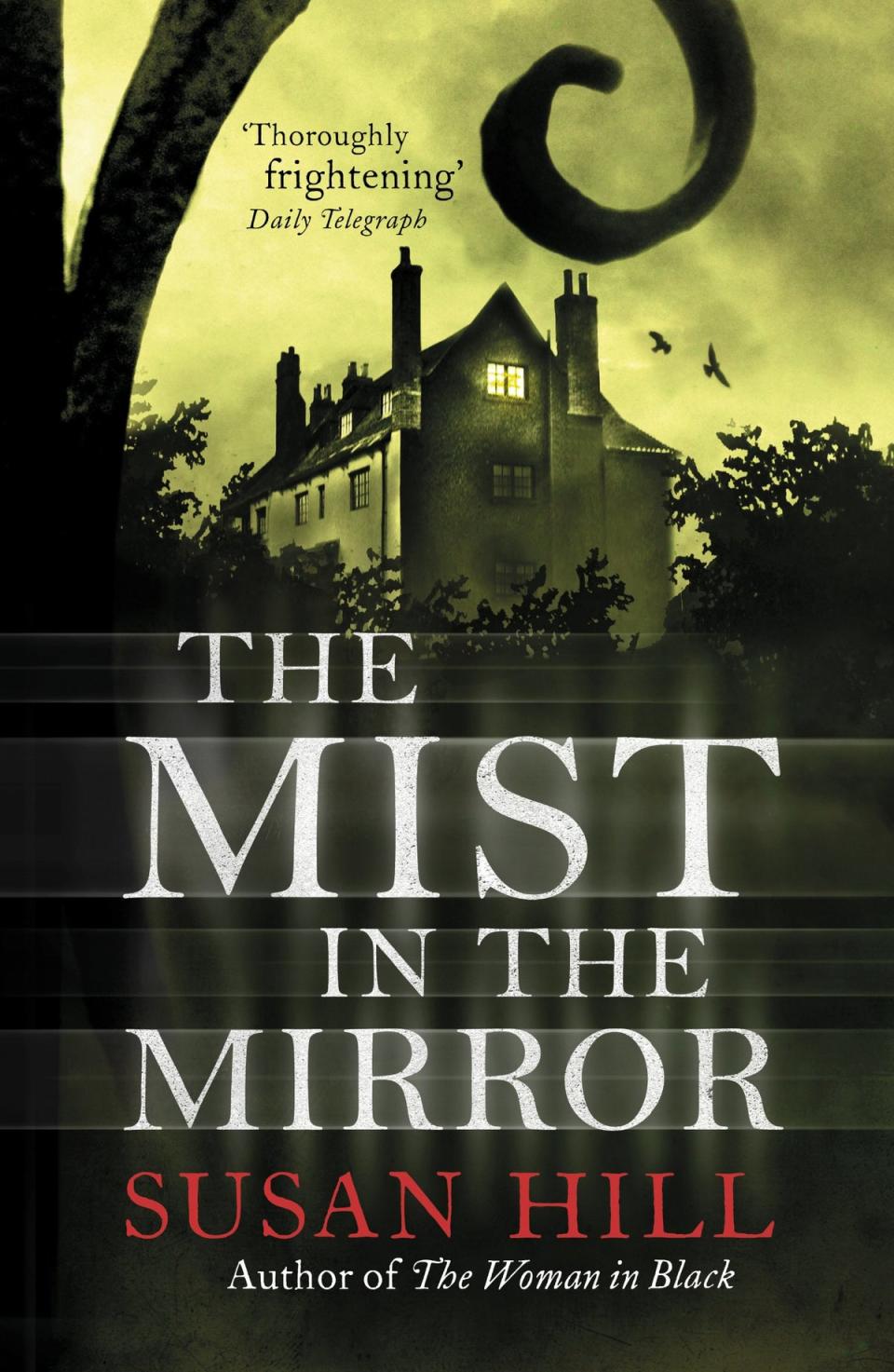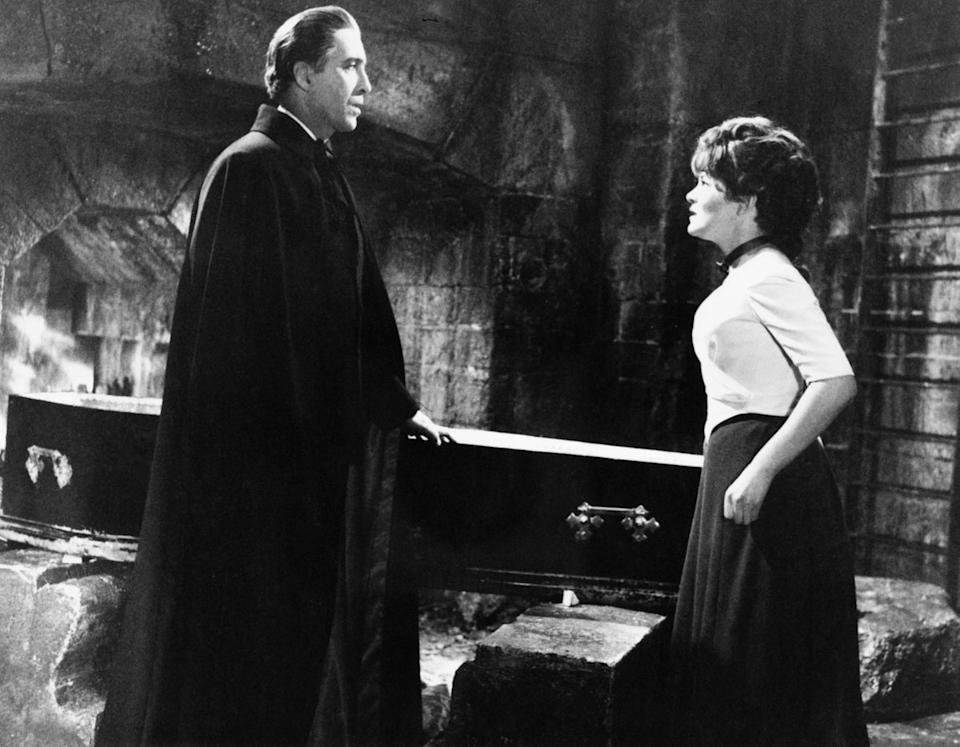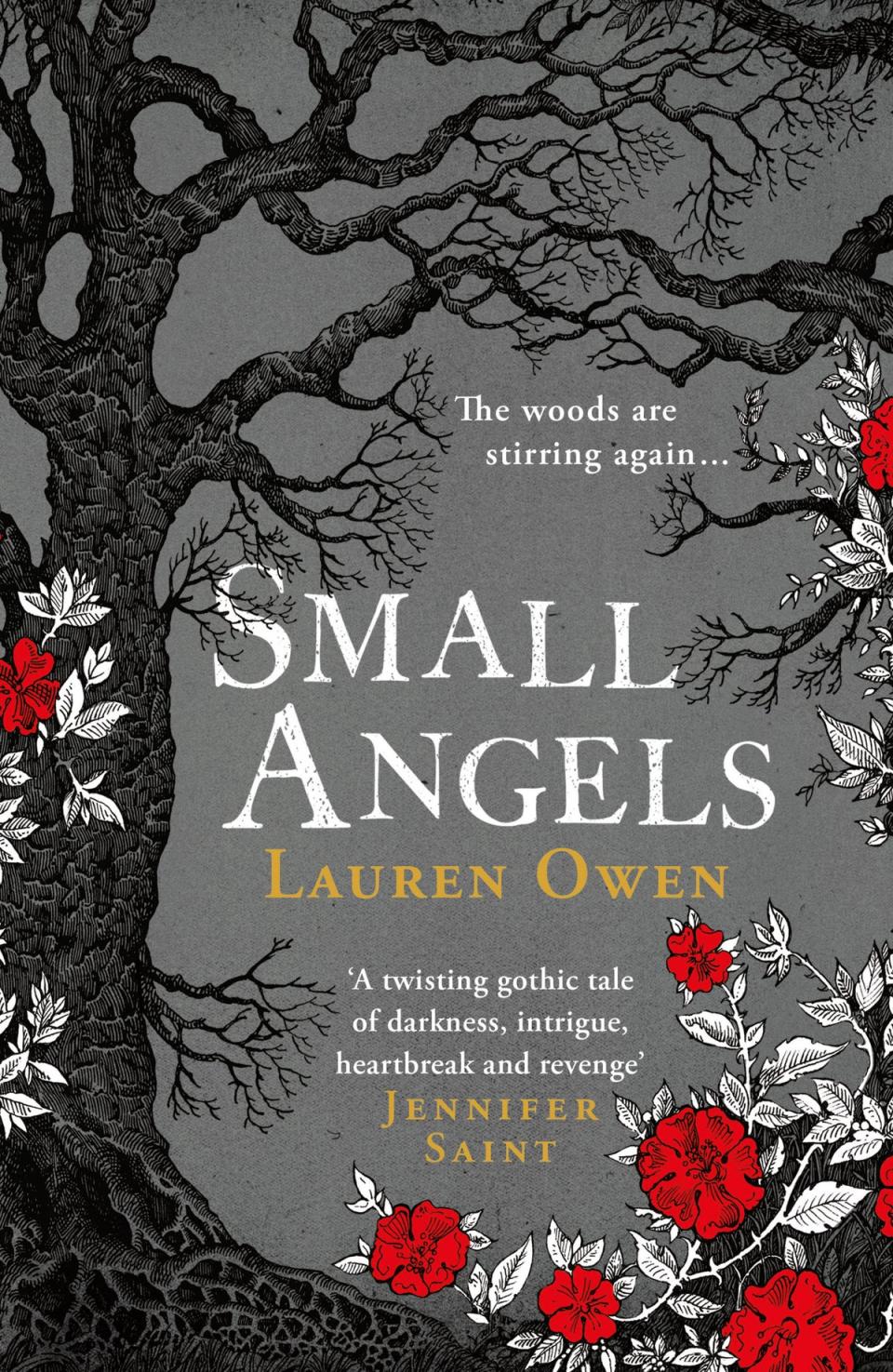Why are we so drawn to ghost stories?

It was the first night of the holiday. We children were packed into one bedroom, our sleeping bags laid out on the floor. My friend said we should tell ghost stories.
She began with an urban legend that was in vogue back then. There are still mentions of it online – including a written retelling by Jackie Gonzalez (aged 10) which was published in the Los Angeles Times on 31 December 1996.
The hero of the story is a boy called Johnny, tasked with buying liver for the family dinner. He spends the money he’s given on sweets, and – rather than return home without the meat – takes what he needs from the local churchyard. That night, the corpse he has desecrated crawls out of its grave to exact its revenge.
The version I heard has a kind of chant to it – to tell it properly you have to imitate the dead man calling out to Johnny:
Johnny, I’m coming to GET you. Johnny, I’m three blocks away.
(Then two blocks – then one. Then Johnny is done for.)
Listening for the first time, I was chilled and appalled. I wanted to hear more.
Even back then, I knew a bit about hauntings – there was a ghost, we used to say, hanging around the toilets at my school – but this was the first time I remember a story told properly, from start to finish, and in a gathering.
If horror can get its hooks into you, it will change your body along with your mind. It can work without a sound, without anyone close by knowing what it’s up to
There’s a sense of camaraderie to hearing a ghost story this way. You have safety in numbers while you listen. It’s a cosy feeling, like sitting indoors listening to a storm.
Still, the enjoyment has a hint of danger because you know that silence and darkness are waiting on the periphery. Sooner or later the group will disperse, or the room will go quiet as everyone tries to fall asleep. Then you’re alone with your imagination, which has just gorged itself on dreadful things.
It’s all pretend – only you can’t help wondering, all the same. What if there’s something to it after all? In the darkness, it feels like the story has called something up.
Fear blurs the lines between real and not-real. If you panic people they’ll believe even a shoddy lie and you can defraud and bamboozle them. But in fiction, this confusion can be a sort of comfort. In waiting rooms and hospital wards, fear has been my friend.
Horror provides an escape if you’re looking for one. Even if you can’t laugh – even if you don’t give a damn whether or not the hero and heroine can work things out – you may still be capable of feeling horror. And that can take you out of yourself for a time. You can dread something fantastic for a change, borrow a new set of problems.

If horror can get its hooks into you, it will change your body along with your mind. It can work without a sound, without anyone close by knowing what it’s up to. The innocuous-looking pages can have your heart beating fast, your chest growing tight with alarm. You start to jump at sudden noises. I remember gasping aloud at a particular twist in Susan Hill’s The Mist in the Mirror – I was safe in my bedroom, but I felt as if something had just jumped out at me. After finishing Laura Purcell’s The Silent Companions I spent most of the evening looking over my shoulder. There was nothing behind me, and yet I felt watched all the same. It was a physical feeling – tension, constraint. That sensation where your body knows you’re being watched. I couldn’t move easily in my own house.
A ghost story can make the world change. It makes the shadows seem darker, and less empty. Your home becomes hostile – you start to wonder what’s lurking in the next room, who’s watching from the darkened window. You can be left with a disturbing kind of story hangover that lasts a lifetime. Personally, I’ve never quite got over Patricia Highsmith’s short story “The Quest for ‘Blank Claveringi’”. I came across it as a child and since then have had a lifetime distaste for snails. Years after reading the story I still sometimes think of it and flinch all over again.
The thing is, if this one story can have such a lasting effect, what else has my reading done to me?
Ghost stories – horror of any kind – can mean excitement, community, comfort, escape. But there’s one key thread running through this tangle of pleasures: horror revels in the power of stories. When we consume it, we revel too – we open ourselves up to being moved and changed.

We can’t consume stories and hope to remain immune, untouched. And we can’t help but consume them because they’re everywhere, they’re in us.
It shows up when we tell each other ghost stories. Human beings are natural narrators – set-ups and pay-offs come naturally to us. We share anecdotes, we tell the best ones over and over. Maybe (if we have a gift for mimicry) we even do the voices. Ask someone how their new flatmate is shaping up, or how they met their partner, and you’ll probably get a story told to you. Maybe a bitter saga of teaspoon theft, or a well-rehearsed love story.
We often do it without thinking. But a ghost story is a more self-conscious exercise. Especially if you’re telling it after dark, to a circle of friends who are itching for you to scare them, just a little. Telling ghost stories reminds us of what we are.
Bram Stoker, the author of Dracula, also wrote on literary censorship. In his article The Censorship of Fiction, he says that fiction is almost as important to a nation as bread. But in the wrong hands, it is a force capable of “corrupting the nation”. Which was exactly Dracula’s project. Some of his contemporaries are treating literature like the unlucky Lucy Westenra, taking it from wholesome and pure to morbid and sullied. For literature like this, Stoker urges censorship. But his article also pays tribute to the sway of fiction, as it is “most potent for good.” It demands restraint because it matters so much.

The overlap between fiction and monster in Stoker’s article is not uncommon. Sometimes horror stories pay open tribute to the power of the book – savouring it even as they make it uncanny. In these cases, consuming stories becomes a dangerous matter. Dorian Gray (passing the buck somewhat) claims that he has been morally “poisoned” by a novel (Joris-Karl Joris-Karl Huysmans’s A Rebours). In Elizabeth Kostova’s The Historian, the mysterious gift of a book is a most sinister omen.
Listening to a story is no safer – the wedding guest in Coleridge’s “Rhyme of the Ancient Mariner” is forced to hear a tale of reanimated corpses against his will, and changed forever by the experience. Elsewhere – in Anne Rice’s Interview with the Vampire, for instance– hearing a story can mean putting your life in danger.
When outfitting a monster, a writer could do worse than look to the powers of fiction. A story carries like a curse, moving from person to person like the unholy creature of MR James’s short story “Casting the Runes”. A story lays you open to outside influence, like mesmerism or magic. You can sit down to read in one state of mind and get up in another. Reading turns you into a haunted house for other people’s voices, even if these writers are long dead. The rooms of your mind echo with Austen and Dickens. If you consume a story, you are consumed in your turn – rapt out of yourself, hypnotised. The story changes you, even as you feed it time and attention. It’s a parasite – a vampire – it can’t exist without you. It needs your life – at least a few hours of it.
Horror is a chance for the story to step into the light and show its teeth. It may not be the quasi-vampire Stoker dreaded. But all the same, it isn’t entirely tame. I think most writers – Stoker amongst them – wouldn’t want it any differently.
All this is worth remembering the next time you pick up a book or open your ears to a story. Don’t be fooled by an elegant typeface or a chummy narrator. The story is powerful, and it wants something. Proceed with caution.
‘Small Angels’ by Lauren Owen is released on 2 August. Hachette, £18.99. You can read a free extract of the novel here

